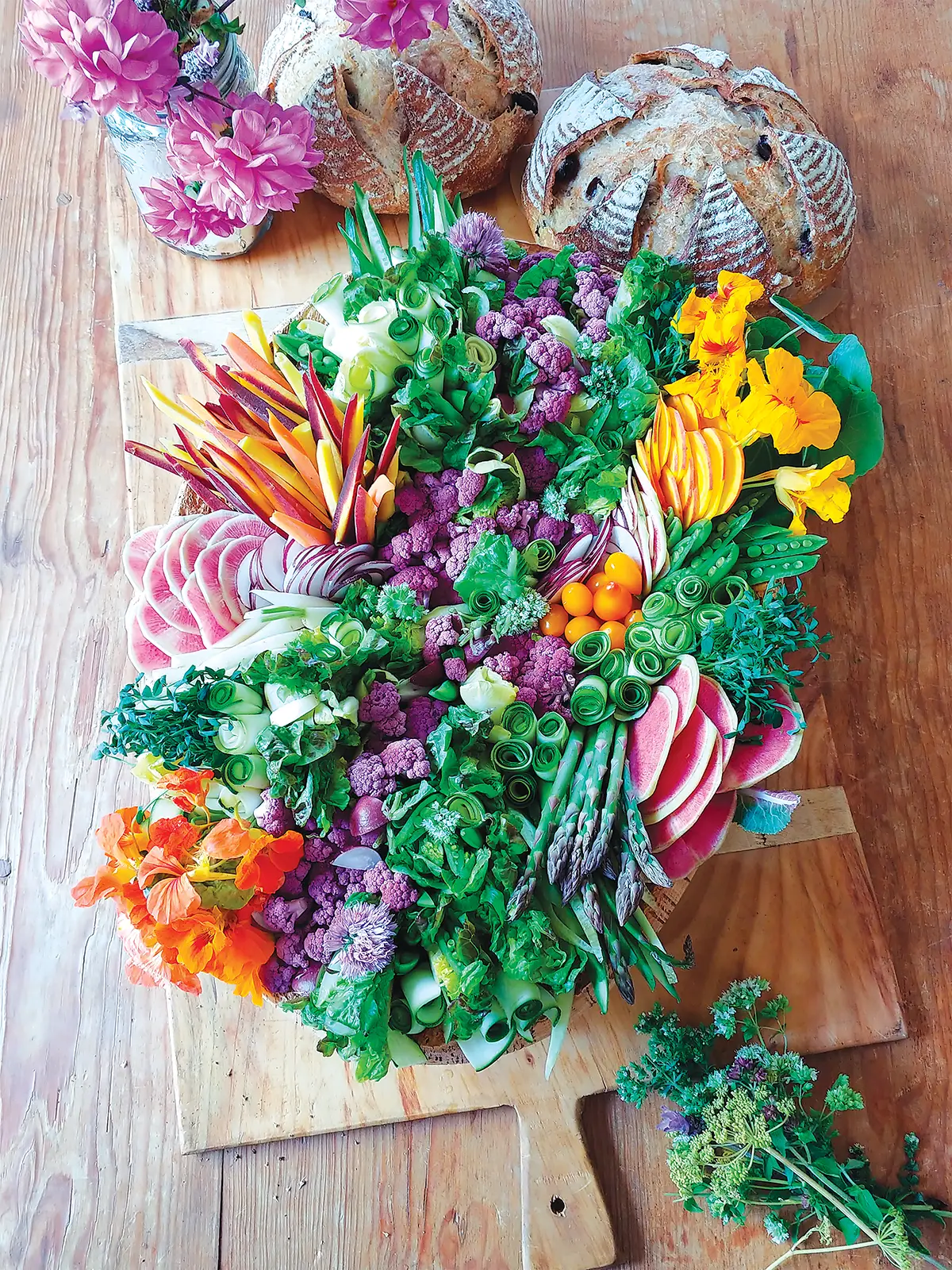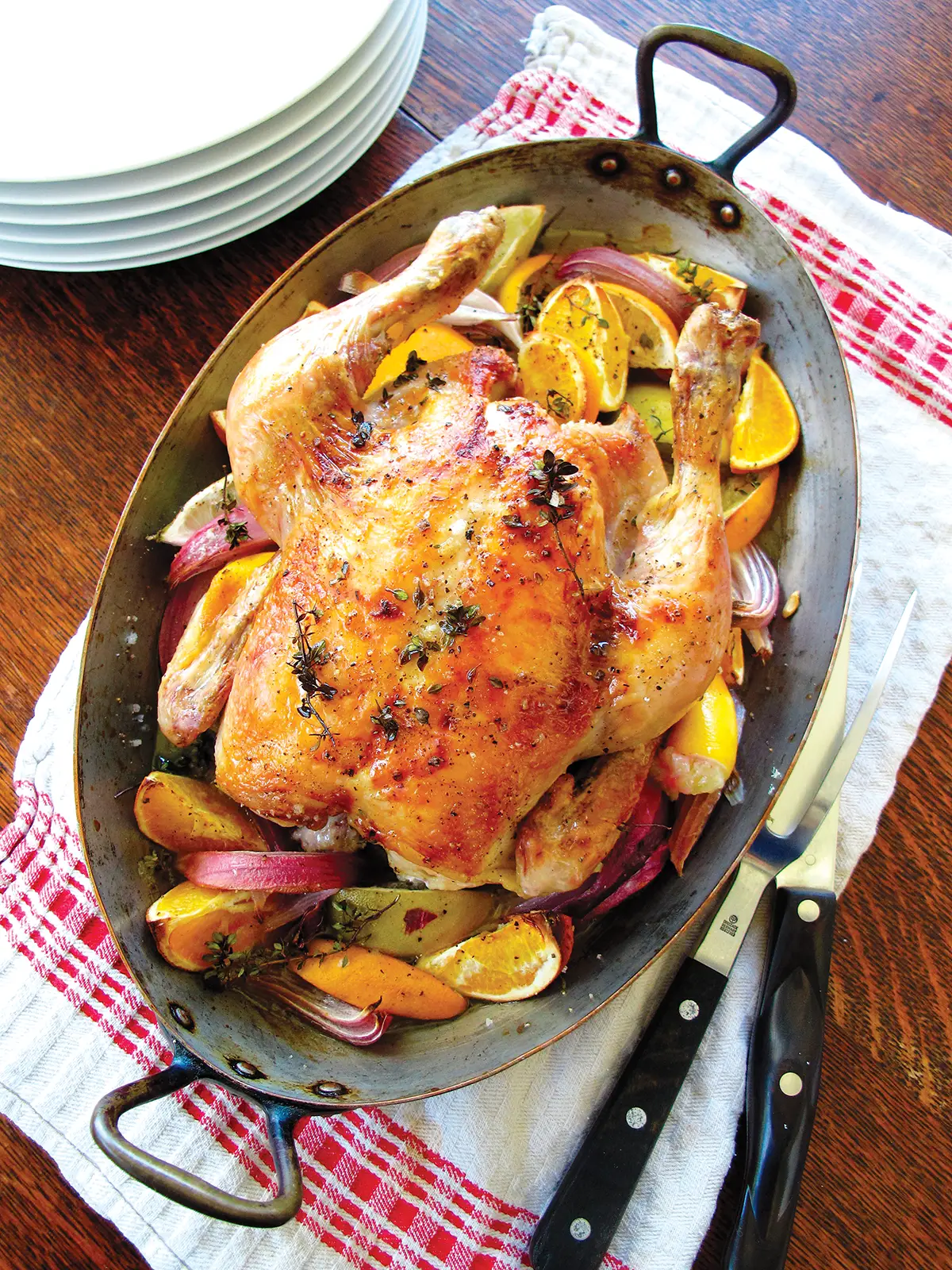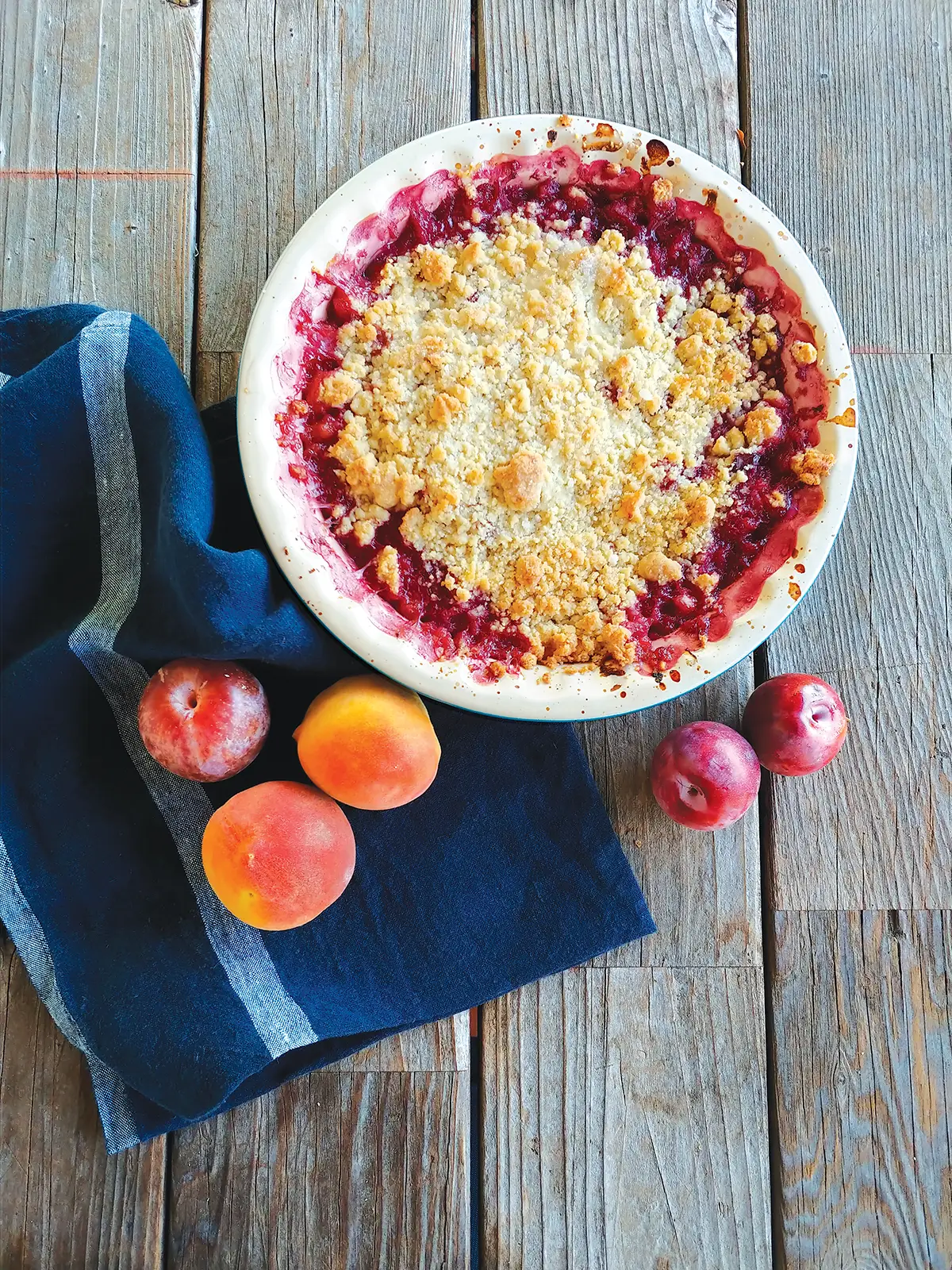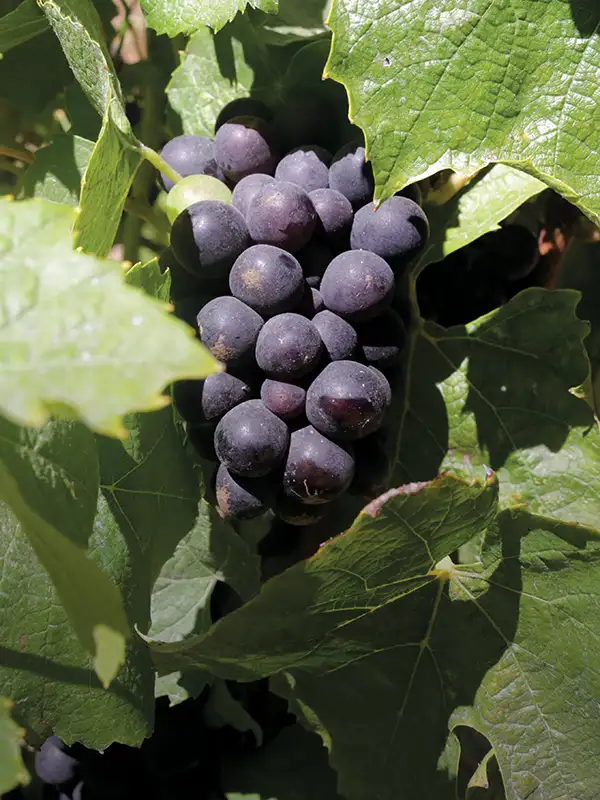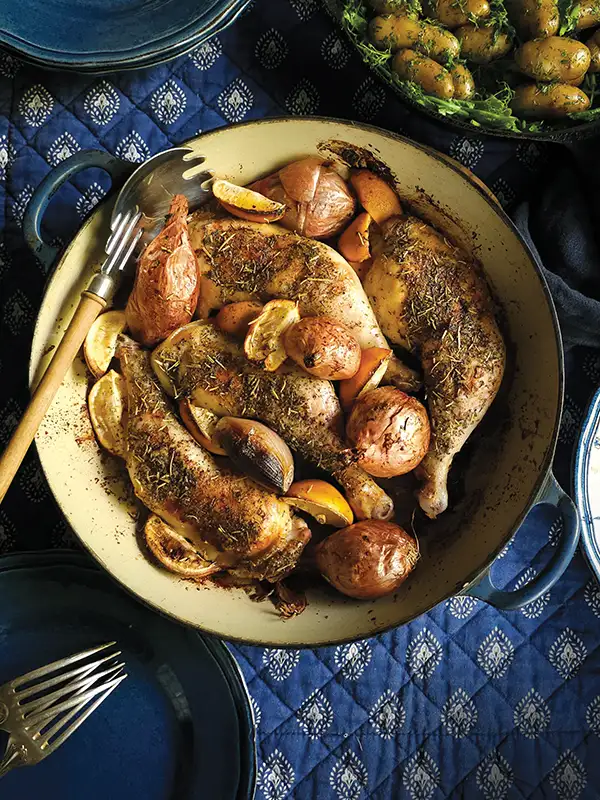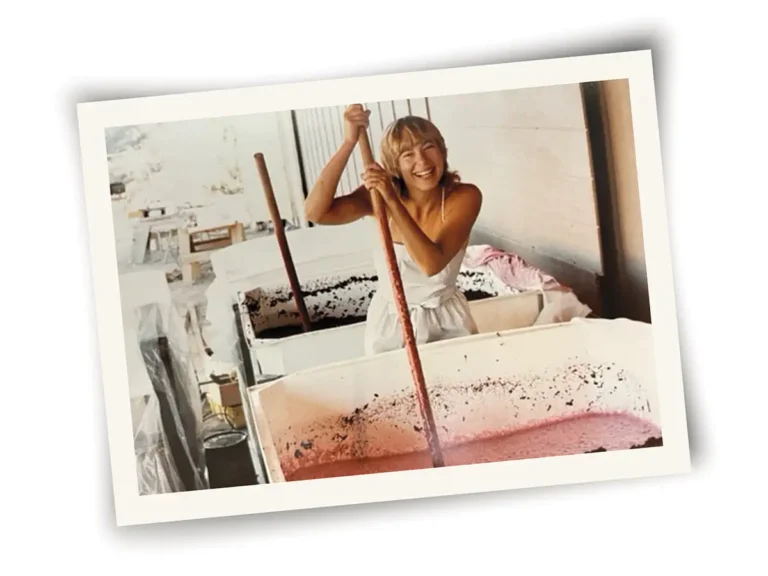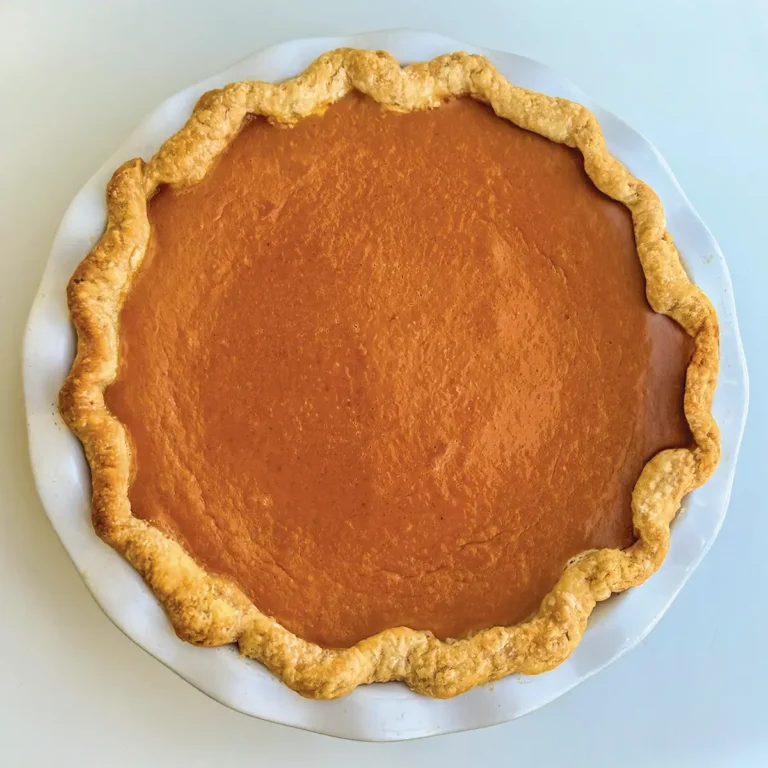Nurturing Nature
Live in each season as it passes; breathe the air, drink the drink, taste the fruit and resign yourself to the influence of the earth.
—Henry David Thoreau
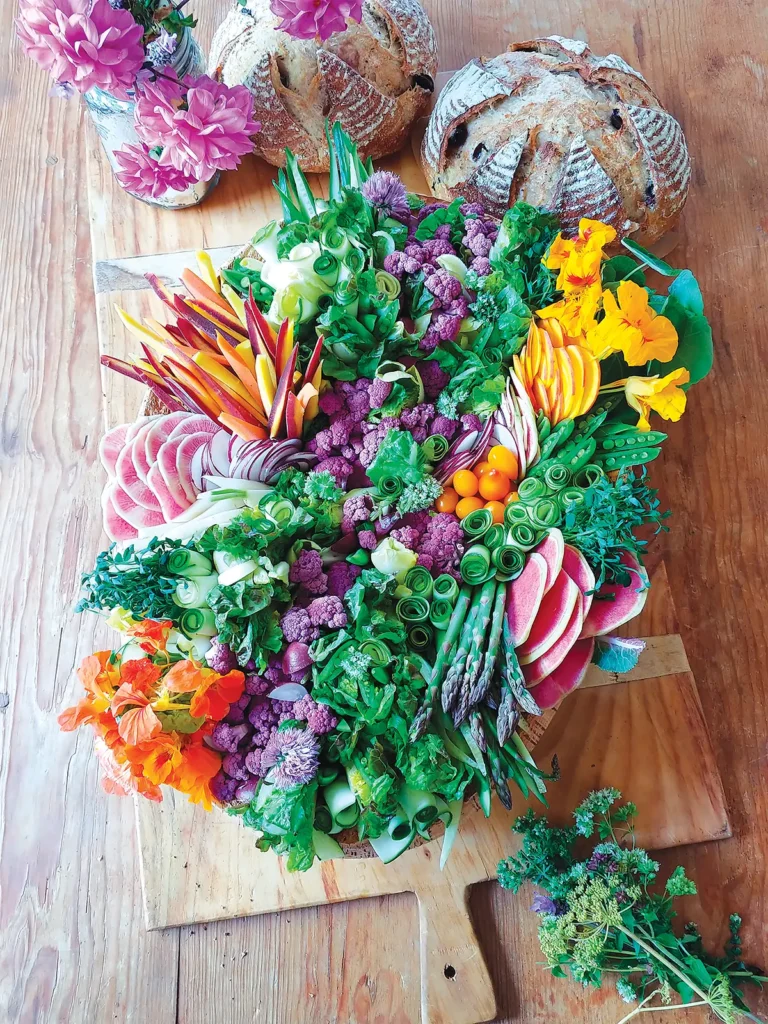
A few weeks ago, I visited paradise. Meandering up and over the hills that take you from the Pacific coast down into the mountain-ringed bowl of the Ojai Valley and nestled in on a tree-lined street is a farm unlike any I have visited before. As I stepped out of the car, one of the first things that struck me was the sense of complete tranquility and peace that enveloped me, like a lovely cozy shawl on a chilly day or a warm breeze caressing your skin on a balmy evening.
This enchanted oasis, a 10-acre farm, belongs to BD (Robert) and Liz Dautch. I was there with a fellow Brit, Sandra Adu Zelli, to video BD talking about his farm for a project she and I were working on. Neither of us anticipated that we would be so spellbound.
We spent a few hours walking through the farm, up and down the alleys of burgeoning vegetables and fruit-laden trees, admiring the fragrant herbs sown between the rows, listening to BD as he talked about tending the land and the journey that had led him to this corner of California.
We listened as he described the transformation of the soil into something rich and nourishing, producing a vast array of crops week after week, season after season, year in and year out. We learnt about the challenges changing weather patterns have created, water shortages and the ravages of fire on the community. It is evident that farming is not for the faint of heart, that it requires dedication and endurance, akin to the stamina needed for a slow-motion long-distance race.
It was also evident that BD and everyone who worked on this farm nurtured the land, working by hand, carefully planting, weeding, thinning, pruning, transplanting and picking—and that the land, in turn, nurtured them. I felt as though I was watching a dance, a symbiotic relationship between those who tended the fields and the land that fed them and, in turn, fed us. I wondered if this was not a good metaphor for life in general and for all of us. Is our need to nurture the land and coax from it an abundance of life similar to the need of people to tend and nurture each other?
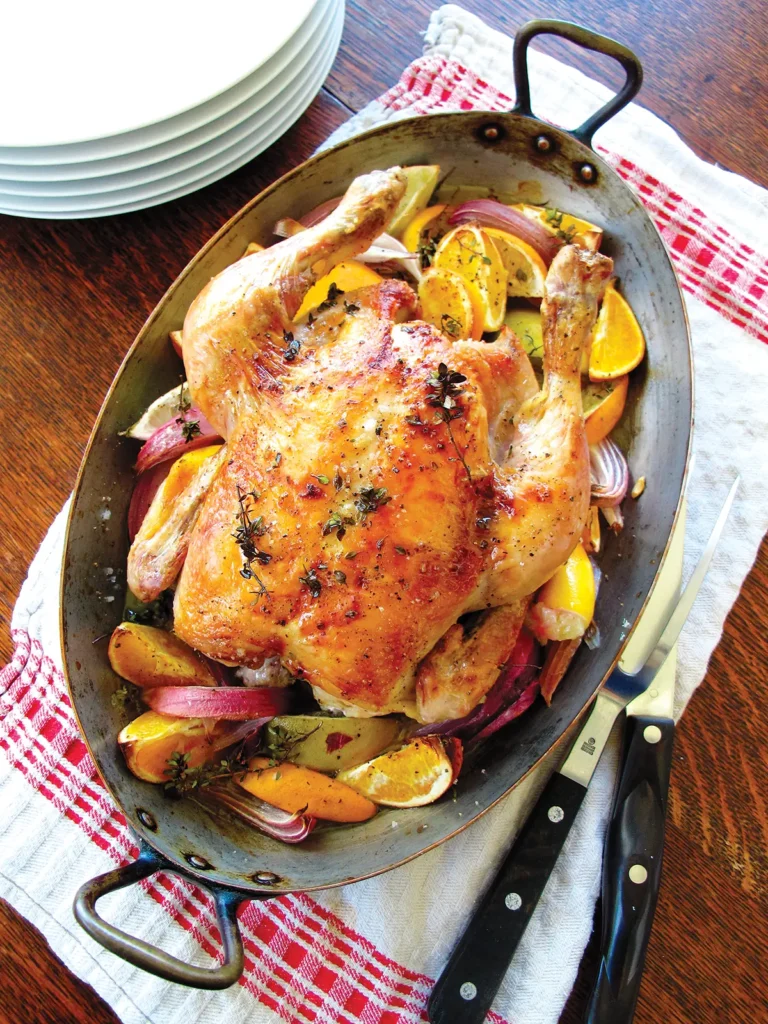
Albert Einstein once wrote, “Look deep into nature, and then you will understand everything better.” One cannot help but wonder what nature had in mind over the past 18 months as we have, for the most part, retreated into a form of forced hibernation. This is not our natural state. Where once we would have gathered together, we have, for more than a year, in varying degrees, practiced the art of self-containment. Our work lives have experienced a profound upheaval. Our homes, having been converted to hybrid work-living spaces, may remain that way as many companies migrate their work platforms to remote/parttime-in-the-office models. How then do we reconnect and feel comfortable in this new cycle of life?
At the time of writing this article, I have just returned from one of the first farmers markets that felt “normal,” or at least as close to normal as we can get these days. The market tables have returned to their former configurations, people (not all) are walking around unmasked, friends are gathering in groups and chatting, shouting out, “It’s so lovely to ‘see’ you!” People seemed less harried and less stressed with the prospect of being in a crowd, feeling out their level of comfort, akin to trying on a new set of clothes and seeing if you feel relaxed walking about it them.
It’s been an adjustment, but the underlying current was one of joy and the sentiment that “we can now get back to the business of being in our community” was tangible. People are eager to commune with one and other, as demonstrated by the plethora of pop-up al fresco dinners mushrooming all over the country, from simple farmyard gatherings and informal vineyard picnics to more elaborate multi-course dinners with hundreds of guests in attendance.
If there is a hesitancy amongst some, it’s because in other parts of the country and around the world, communities are experiencing the same paralysis we lived through months ago, all of which upsets our natural equilibrium. So how have people coped? Many, myself included, have turned to gardening.
From the simplest potted herbs on a windowsill to digging up great patches of earth for Victory-style gardens with raised beds and veggies a plenty, gardening in all forms has exploded in the past year. There is a logical thread to this. In getting one’s hands stuck in the dirt, planting and nurturing our seedlings, we are physically and tangibly tied to the passage of time, to the vagaries of weather and the seasons. There is something inordinately satisfying about growing something, let alone eating your own produce.
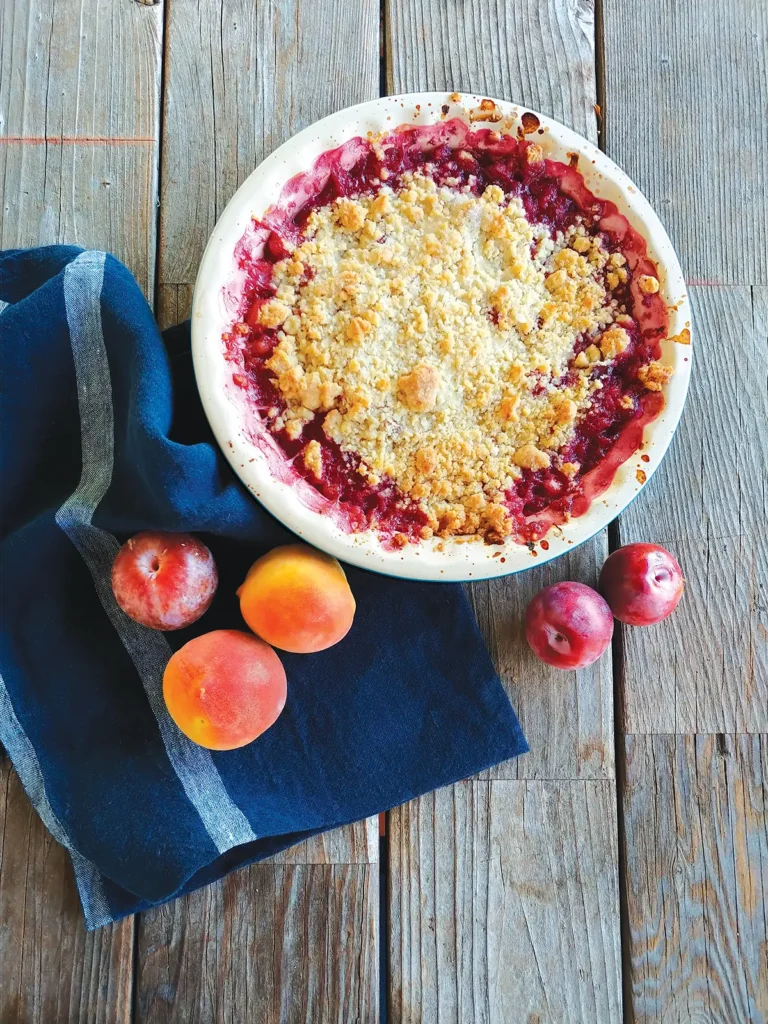
My efforts have produced a mixed bag of results. My peach tree produced exactly one peach,—a beauty, but only one. The plumcot next to it is dripping with fruit. I have no idea why that is, well, maybe an inkling. I think I need to nurture my plants a little more, realizing that my laissez-faire attitude may not be conducive to an abundant harvest. I have friends with prodigious green thumbs who have fed their families from their fecund gardens. If there is one thing I have learnt, and appreciate all the more, it is just how much work goes into a well-tended vegetable patch, let alone a full-sized working farm.
Little wonder then that every year, come harvest time, farmers and their farmhands have gathered together to celebrate the season’s crops. For millennia, there have been harvest festivals with large family-style gatherings, food laden trestle tables set up in barns, courtyards, fields and farmers’ homes. The festivities offer a small respite to the daily mountain of tasks that farmers face, knowing that the next day they’ll be back up at the crack of dawn to tend the land once more. I am, all the more so since my visit to BD’s extraordinary farm, filled with gratitude for their valiant efforts to bring this nourishment to the local population.
My small potted plants and minute herb garden will not feed the masses, or even my family, but I too will have a small dinner of gratitude to fete this season and the fact that we are, hopefully, emerging from this crisis.
Marcel Proust, known for waxing lyrical and at length about madeleines amongst other things, also wrote, “Let us be grateful to the people who make us happy; they are the charming gardeners who make our souls blossom.”
I cannot think of a more fitting tribute for the men and women who toil throughout the year bringing us sustenance, and reminding us how nature nurtured feeds us all.
